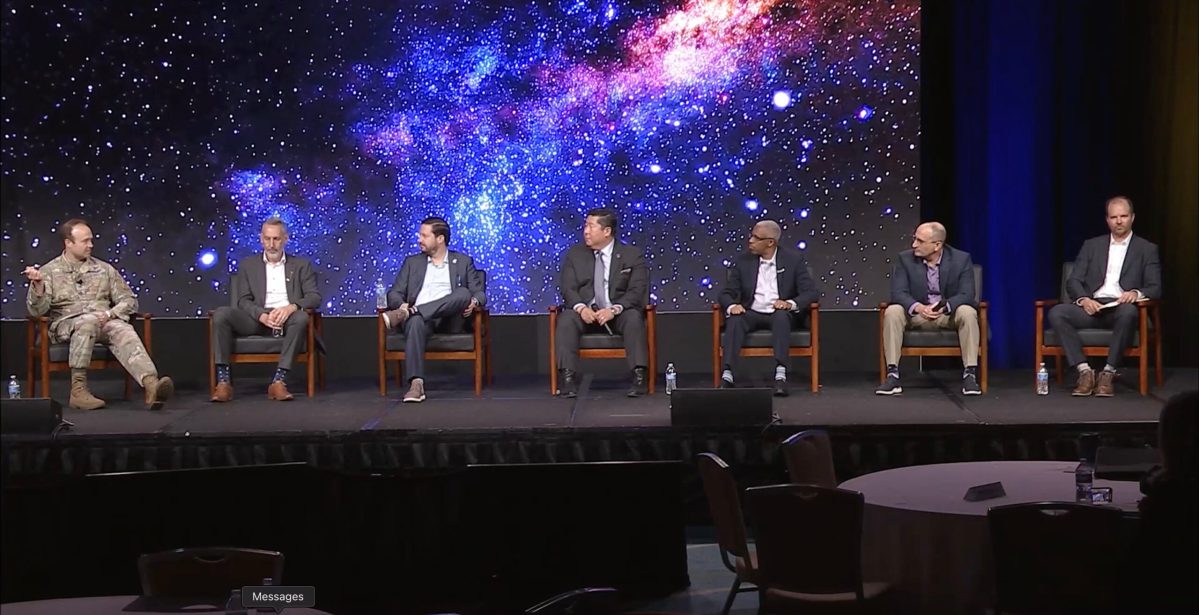ORLANDO Fla. — Private companies called for more support Dec. 11 to better prepare for the U.S. Space Force’s upcoming commercial reserve program, which aims to tap into their space assets during crises or emergencies.
The Commercial Augmentation Space Reserve (CASR) framework is generally heading in the right direction, Jason Mallare, vice president of global solutions at synthetic aperture radar startup Umbra Space, said during a Spacepower Conference panel here.
However, he said firmer commitments to preposition or inventory hardware, whether in orbit or on the ground, would provide commercial players with greater financial certainty as part of CASR.
“The last thing we want to do is, go to support a domestic need, pull support from international customers, hurt our commercial business, and then actually cede market to international competitors,” Mallare said.
Tim Bode, senior solutions architect at Leidos, joined others on the panel in emphasizing the need for early, meaningful contracts to support training and collaboration, as well as clearer guidance on the requirements for commercial players.
Bode also called for greater transparency and access to government systems to enhance capabilities.
“I think we need to take a harder look at things like command and control orchestration systems that might exist on the other side of that classified wall,” he said, “that can, in real-time [and] in a fashion that can be scaled, reach out and leverage commercial capabilities,” potentially with complete automation.
Brad Cheetham, CEO of contractor Advanced Space, noted that improving access to information and facilities remains a challenge for national security collaborations, despite progress made in partnerships with NASA.
“Those two things, I think, are challenges that we can get after, hopefully upstream of it being urgent,” Cheetham said.
Jason Kim, CEO of small satellite launcher Firefly Aerospace, recommended small study contracts for commercial space businesses to help them prioritize finding ways to work together.
“[Y]ou don’t want an event that … puts all those partners together with a very short lead time,” Kim said. “Get preventative right now. Start having these companies work together on a five-year case study.”
He said these contracts could focus on interfaces and couple loads analysis, which predicts how a payload and launch vehicle interact and respond to forces during launch to ensure structural compatibility and safety.
“And then when we get called up, guess what? You can just add dollars to that special study and go.”
